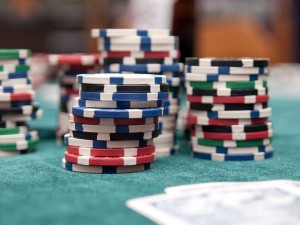It seems every time we turn around, the results of one new research study or another are being presented to the government. Most of them heed no significance for the average player, but a new study that found veracity in the argument that poker is a game of skill, has the potential to lead to a significant impact on poker players in the UK.
 According to the fiscal assessment laws of the United Kingdom, gambling winnings cannot be taxed. All forms of gambling are viewed as mere games of chance, and for years now, poker has fallen right in line with that classification. But, mirroring the opinion of so many professional players, a new study conducted by researchers from the Universities of Amsterdam, Nottingham and Rotterdam says poker is a game of skill.
According to the fiscal assessment laws of the United Kingdom, gambling winnings cannot be taxed. All forms of gambling are viewed as mere games of chance, and for years now, poker has fallen right in line with that classification. But, mirroring the opinion of so many professional players, a new study conducted by researchers from the Universities of Amsterdam, Nottingham and Rotterdam says poker is a game of skill.

A synopsis of the study, entitled “Beyond Chance? The Persistence of Performance in Online Poker”, was published by the Network for Integrated Behavioral Science (NIBS), in which co-author Dr. Dennie van Dolder said, “skilled players will consistently outperform less skilled players if enough hands – around 1,500, according to our research – are played.”
The research team put a great deal of time and effort into the study, analyzing 456 million hands of online poker.
They found that players who “ranked in the top-performing 10% in the first six months were more than twice as likely as others to do similarly well in the next six months.” Furthermore, the study revealed that players who performed in the top 1% during the first 6 months were “12 times more likely than others to repeat the feat in the second half.”
A behavioral and experimental economics expert, Dr. van Dolder resolved, “If performance is predictable, as we found, then it follows that poker involves an element of skill and can’t be merely a game of pure chance. But that still leaves the crucial question of whether skill dominates chance, which we set out to address by comparing the performance of skilled and unskilled players.”
To answer that question, the team analyzed the performance of skilled versus non-skilled players, consistently finding that after an average of 1,471 hands, the skilled players outperformed their less practiced opponents “at least three quarters of the time”.
Poker’s Game of Skill Tag could lead to Taxable Winnings
“It’s up to legislators to decide whether the role of chance diminishes fast enough for poker to be considered a game of skill,” said Dr. van Dolder. “If so, then our findings represent both good and bad news for players.
“The good news,” he continued, “is they’ll have the satisfaction of knowing the game they love is recognised as requiring real skill… The bad news is that one day they might have to start handing some of their winnings to the taxman if the policymaking community takes notice of findings like ours.”
The complete results of the study, finding poker to be a genuine game of skill, can be viewed here.
